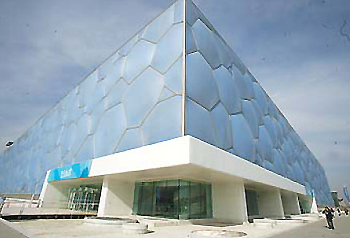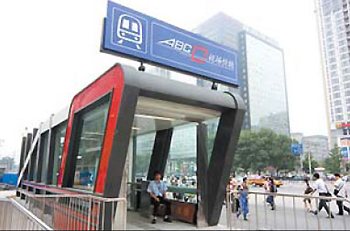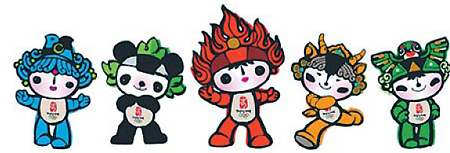16. Massive Olympic education campaign
Educating young people through sports is one of the primary goals of the Olympic Movement.
About 400 million young people in more than 500,000 schools across the country have received Olympic lessons ahead of the Beijing Games. More than 500 model schools have been named and a series of Olympic readers compiled and presented to students.
17. Highest number of doping tests

The anti-doping effort at the Beijing Games will be more extensive than ever, with as many as 4,500 doping tests, 25 percent more than in Athens four years ago and 90 percent more than in Sydney in 2000.
Tests will be carried out from July 27 at 41 test stations at the Olympic Village and all Olympic match venues.
18. Highest spending
The cost of the Beijing Games will dwarf the previous Olympics in Greece with total investment likely to reach $43 billion.

Venues, estimated to have cost about $1.8 billion to build, will be utilized as public sport and entertainment complexes afterwards.
Beijing also spent $16 billion in the past decade reducing smog, while additional infrastructure, such as the world's largest airport terminal, T3, an advanced railway station and new subway systems required vast expenditure.
19. Largest transport expansion

Beijing's first subway linking Fuxingmen and Beijing Railway Station was initially built for military use, but today, 1.5 million passengers ride the 2-yuan subway each day.
The existing subway network spans 155 km and has 93 stations. Three new lines will open shortly before the Games, to transport visitors to and from the new airport terminal and between the Bird's Nest and downtown, and construction of more lines will continue following them.
At least six others are already under construction, with an aim to stretch the network to more than 561 km and 420 stations.
20. Highest number of mascots - five

Multiple Olympic mascots are not uncommon, but for the first time more than three figures will share Summer Olympic mascot duty when the five Fuwa take center stage.
Featuring four of China's most popular animals - the fish, the panda, the Tibetan antelope and the swallow - and the Olympic flame, the mascots' names are "Beibei," "Jingjing," "Huanhuan," "Yingying" and "Nini," which together reads in Chinese as "Beijing welcomes you".